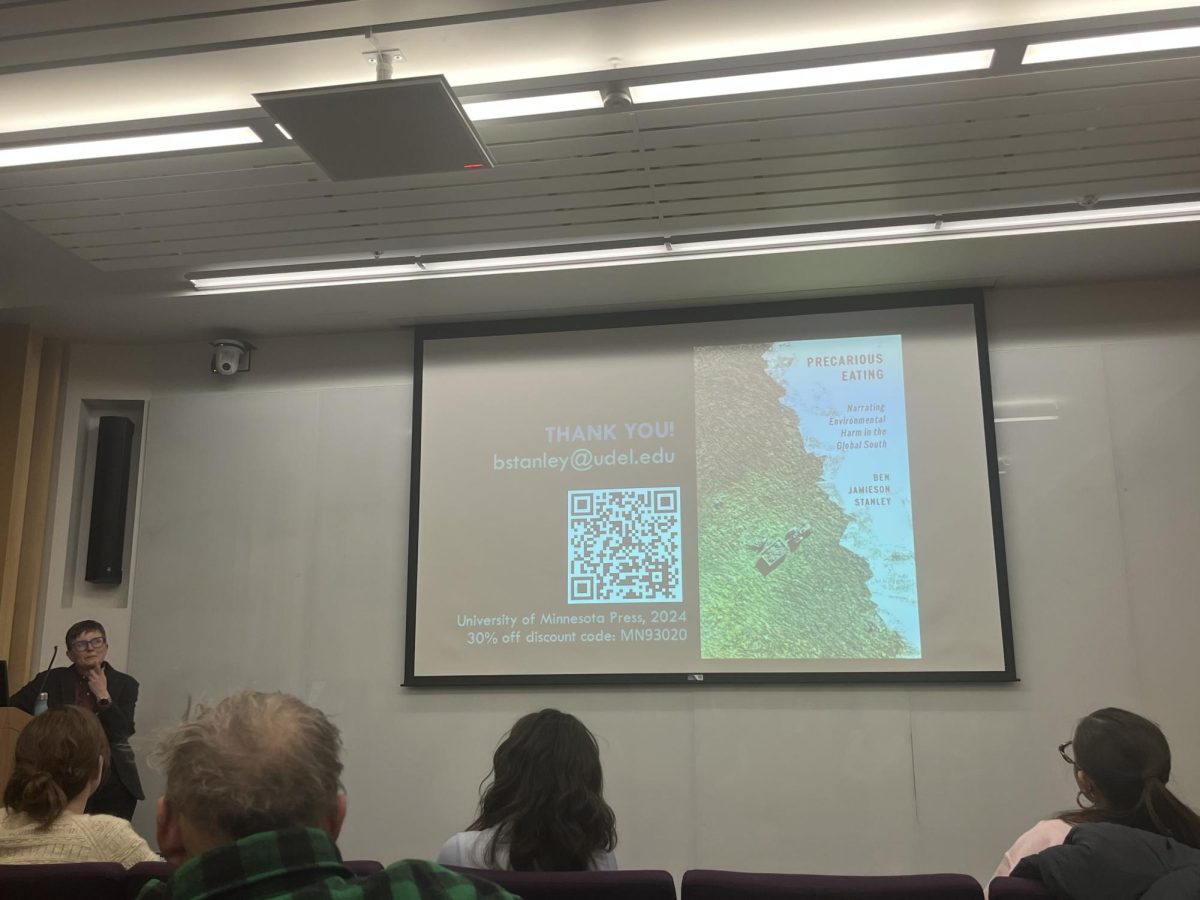University of Delaware English Prof. Dr. Ben Jamieson Stanley presented their findings from their recently published book, “Precarious Eating: Narrating Environmental Harm in the Global South” at a talk in Kresge Hall on Thursday evening.
The book focuses on the social and environmental impacts of food production and consumption in the Global South. Stanley said they were inspired to write the book after reading Zakes Mda’s novel “The Whale Caller,” which similarly discusses the social role of food in the Global South.
“I was coming across these examples of environmental literature from the Global South countries that I study … that rather obsessively raise these questions about food, eating and taste,” Stanley said.
Stanley also discussed the issue of food aesthetics, as reflected by global “foodie culture” and the often inaccessible nature of foods that are branded as fresh. Stanley said that farm-to-fork-style restaurants can easily become hotspots for tourists but are often completely out of reach for locals.
Stanley added that a main focus of their work and interest is the social disparity encouraged by food in South Africa. In its post-Apartheid state, South Africa’s food culture has evolved somewhat, but is still oppressive in that it provides a “repackaging of foodways that have been vital to indigenous survival, as gourmet food for wealthy, often white, tourists,” Stanley said.
“It was a beautiful talk,” English Prof. Mariajosé Rodríguez-Pliego, who attended the lecture, said. “I really loved the way it began with a very specific food staple of South Africa and kind of circled around different food staples.”
Rodríguez-Pliego added she was interested in the topic and appreciated the discussion’s specific focus.
The talk was just one indicator of the growing environmental humanities discipline, which Stanley described as supplementary to the STEM fields that scholars typically associate with environmental work.
“We don’t all experience environmental risk evenly; some populations are much more exposed to environmental risk than others,” Stanley said. “This is something that the environmental humanities are very good at inviting us to think about.”
Event organizer and English Prof. Sarah Dimick said she also believes in the “rapidly developing field” of environmental humanities. She added that students should be aware of cutting-edge publications in these fields.
Stanley concluded the event with a Q&A session, where they praised attendees for their complex and oftentimes loaded questions.
“It’s easy to be really isolated in doing academic work, when actually the greatest pleasure of it is getting to be in conversation with other scholars,” Stanley said.
Email: bayleekrulewitz2028@u.northwestern.edu
Related Stories:
— Author R. F. Kuang talks writing, inspirations with NU AASP
— Louise Erdrich talks inspirations One Book One Northwestern keynote






